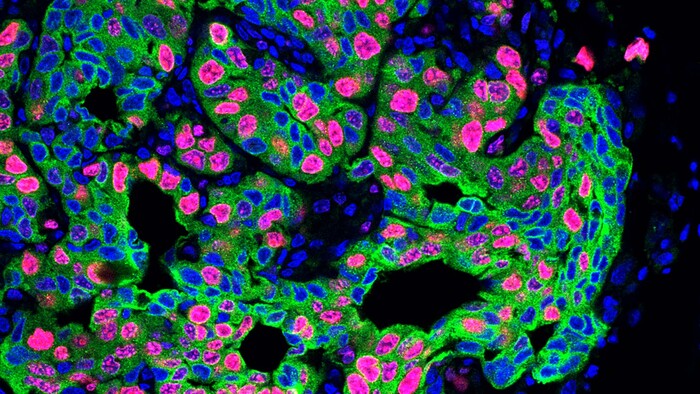A new American myth falls: Johns Hopkins, celebrated as a philanthropist in favor of the abolition of slavery whose wealth made it possible to found the prestigious university which bears his name, himself owned slaves.
This difficult revelation for the institution of Baltimore, which displays values of tolerance, comes as the United States has been examining its past of racism and segregation since the spring, amid a wave of historic protest against discrimination .
To read also: Pierre Vermeren: "Black slave trade and slavery, hemiplegic memory"
The calls to dismantle the statues of figures of the slave South have multiplied and the controversy does not spare
America's
“founding fathers”
, George Washington and Thomas Jefferson, also owners of slaves.
"For nearly 100 years, we've been telling a story about where we come from that isn't accurate,"
Ron Daniels, the university president, said in a Zoom discussion on Friday.
"We are appalled by the revelation of this part of Johns Hopkins' life."
Coming from a wealthy family in Maryland, the businessman made his fortune in commerce and banking.
Raised in the Quaker faith, a Protestant movement opposed to slavery, he supported Abraham Lincoln during the Civil War.
Died in 1873, he bequeathed part of his fortune for the creation of an orphanage for black children, a university and a hospital where all the sick would be accepted without distinction of sex or origin.
But according to census records uncovered this summer, dating from 1840 and 1850, Johns Hopkins owned slaves.
One in 1840 then four, ten years later.
It is a shock for the prestigious private university founded in 1876 and which has made diversity its hobbyhorse in Baltimore, to the predominantly black population undermined by poverty and delinquency.
In 2018, billionaire Michael Bloomberg, who graduated in 1964, donated two billion dollars to finance the allocation of scholarships to students from poor families.
Little remains of Johns Hopkins and his family.
His historiography is mainly based on praising press articles published after his death and on the memoirs of his great-niece, Helen Hopkins Thom, which date from 1929. The work of truth has only just begun, assured Martha Jones, responsible for the commission set up by the university which wants to try to find the descendants of these unknown slaves.
"We are only just beginning to dismantle what turns out to be foundational myths about the origins, not only of Mr. Hopkins, but of his life's trajectory and the gift he gave to create this institution,"
a- she declared.




/cloudfront-eu-central-1.images.arcpublishing.com/prisa/36YUZWH3G5FBPFHTGGWZ53HOJY.jpg)




